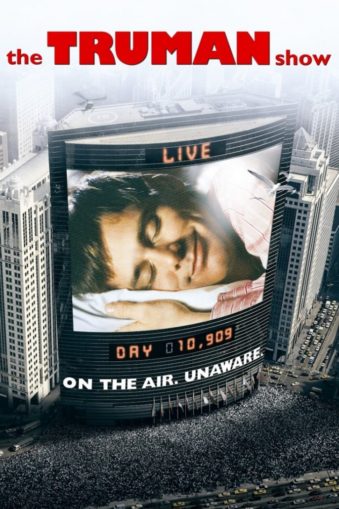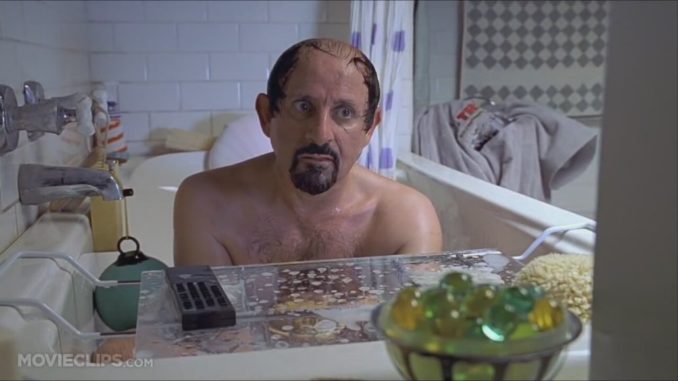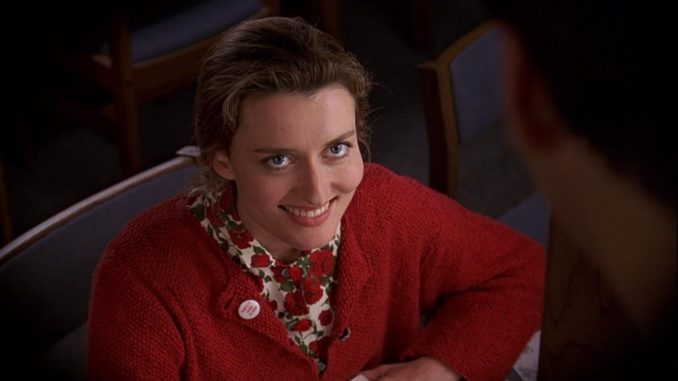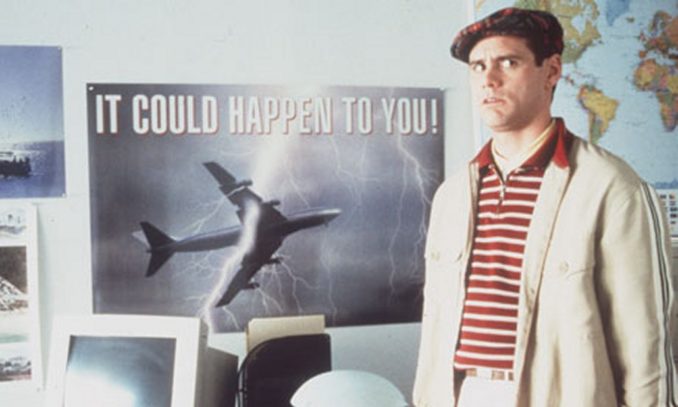
“All the worlds a stage, and all the men and women merely players”, so wrote Shakespeare, and never could these words be better applied than to The Truman Show. Released in 1998, the film is directed by the great Australian Peter Weir, a man whose body of work should make the rest of the industry blush, from war films (Gallipoli), thrillers (Witness), drama (Dead Poets Society), mystery (Picnic at Hanging Rock) and adventure (Master and Commander), the man has done it all.
Turning his talents to the sci-fi genre, Weir has produced one of the great films of my lifetime, if not all time, ranking alongside kindred spirits like Frank Capra and the best of Ealing Studios. Coming out one year before The Matrix, both films deal with the platonic idea of shadow worlds and the nature of reality, but while the former was a kick in the gut, action extravaganza, which went onto spawn three sequels, countless parodies, and become a part of the cultural lexicon, The Truman Show is a rather gentler affair, more akin to a live action Pinocchio, and has somewhat vanished from memory and the screens.
The film is set in a fictional town of Seahaven Island, which is the elaborate set for the titular reality show, based on the life of our hero. Born live on tv, Truman’s every action is captured on hidden cameras and beamed to the masses, his family and friends merely actors playing their parts, his whole life a stage-managed affair. The character of Truman is played by Jim Carey, who reigns in his trademark zany behaviour to give a warm, nuanced performance. This is the peak of his surprisingly long career that started way back in the early 80s and came off the back of a string of nine hit films in five years in the mid 90s, with special mention for the equally good Man On The Moon (1999).
It is with great skill that Weir and the writers weave their tale, the set up allows him to play around with a myriad of camera effects reflecting the hidden cameras placed throughout the set; weird angles, fisheye effects and two-way mirrors. The plot criss-crosses between the fake world of Truman with the real world of the tv audience, with the latter tuning in from bars to car parks, to the settee, all rooting for the hero together. The scene with the man in the bath clinging on with Truman is an emotional climax that never ceases to move me, both funny and heartfelt at the same time. It is a simple yet clever device; we the viewer are echoing the behaviour of the viewers in the film, who are themselves echoing the deeds of Truman.

Little by little the writers begin to show behind the facade of the model town, which itself is a rose-tinted version of 1950s society, white picket fences and all. Parts of the set begin to malfunction and interloping fans invade the stage. Even the shows actors begin to break down and break the fourth wall, talking out of character directly to the camera. All the while seeds begin to take root in the mind of Truman that something is not quite right. We are introduced to the characters in his life beginning with Christof, the show’s producer, played by the ever sturdy Ed Harris, who acts as both a father figure and God to Truman, reflecting the delusional character of the man who pretends to love him, while manipulating him all the while, even to the extent of robbing him of his loved ones. Christof in turn is mirrored by that of Truman’s school sweetheart Sylvia, played by Natascha McElhone, who is the one genuine person in his life, and who acts as a bridge between the show and the outside world. While in the background his hysterical on-screen wife Hannah, superbly played by Laura Linney struggles to handle Truman’s increasingly manic behaviour. As the story moves forward, so Truman begins to dream of life outside the confines of Seahaven, leading to desperate attempts by the shows makers to thwart him at every turn, with some wonderful comic vignettes entailing. All these character arcs are interwoven with aplomb by Weir, who then brings them together for the climatic, literal show-stopping ending.

It is a fantastic film that can be enjoyed by all ages, it is a classic tale of growing up, and the need to break free of parental control, as well as the need of parents themselves to let go of their children. While on the other hand it can be seen as a biting satire on society, coming as it did at the beginning of the age of reality tv; it highlights our obsession with celebrity, our voyeuristic tendencies, and the emotional shallowness of investing in something one moment before callously switching over the next. It echoes the warnings about mass surveillance, and even highlights the increasing commercialisation of life with ubiquitous product placement. Furthermore, it touches on the nature of reality and perception, free will and destiny. It really is an onion of a film, the more layers you peel back, the more it reveals. The amount it manages to pack into the 103 minute running time beggars belief. Yet the message at the heart of the film remains simple, that fear holds you back, and love sets you free. I expect it will still hold up in fifty years’ time, as there is nothing that can really become dated about it, primarily as it is deliberately dated to begin with. I hope you enjoy it as much as I do. So, there you go, and wherever you are; good afternoon, good evening and good night.

© Authur 2023



